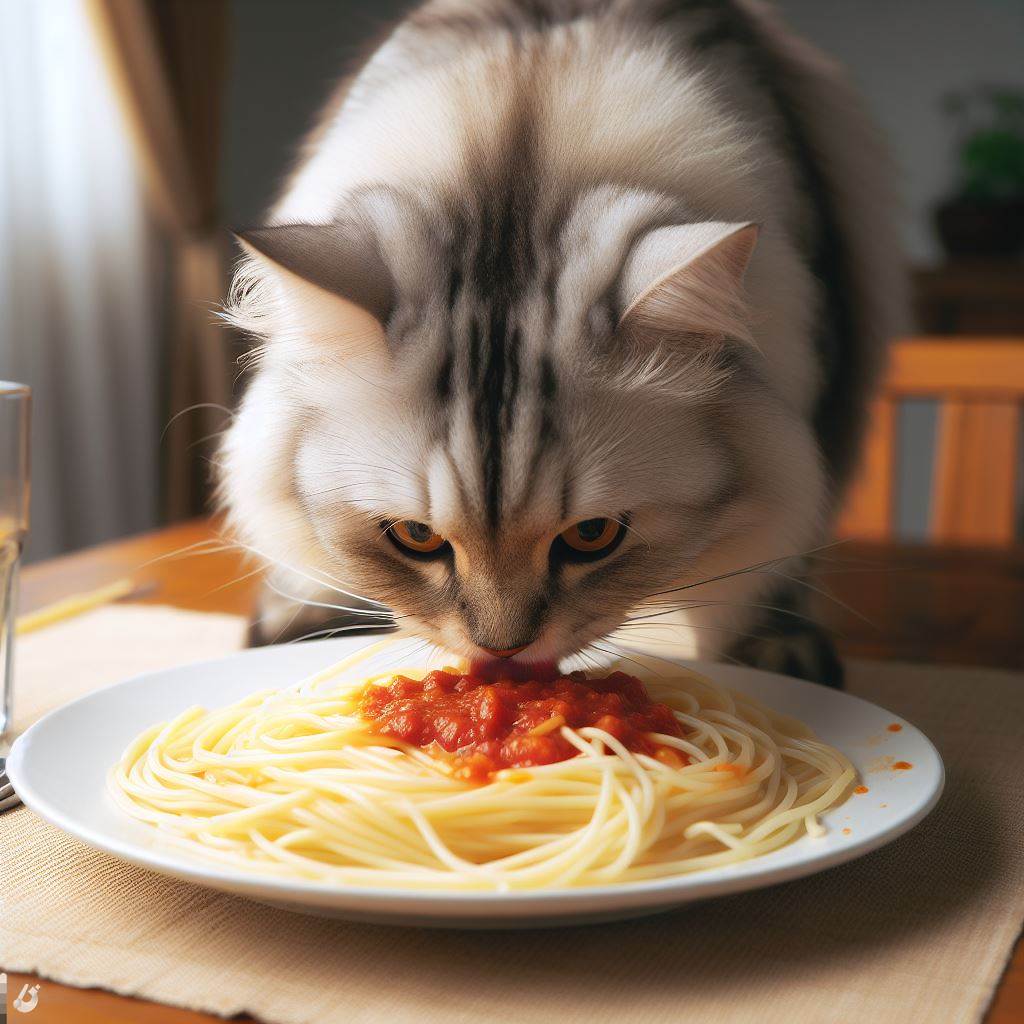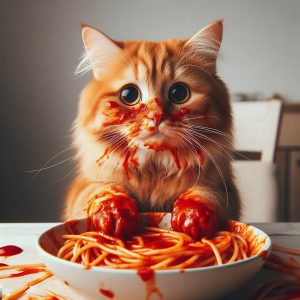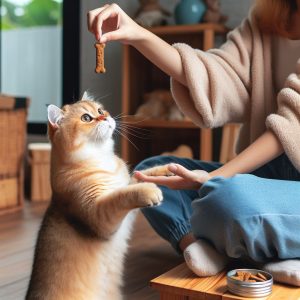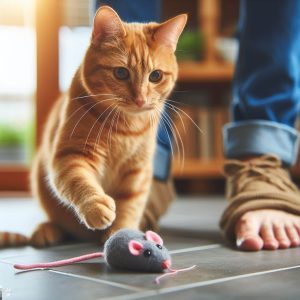As a cat owner and spaghetti lover, I know the panic that sets in when you realize your furry friend has gotten into the tomato sauce. One minute Kitty is curiously sniffing your plate, and the next he’s licking rich, fragrant sauce off his whiskers. While the image is admittedly adorable, you know tomato sauces can contain toxic ingredients for cats like onions and garlic. Now what?
Don’t worry, friend. With some quick action, your sauce-slurping feline can make a full recovery. In this post, I’ll share my tips for protecting your cat after a spaghetti sauce misadventure. We’ll cover:
- What ingredients in sauce are dangerous for cats
- Warning signs your cat may be sick
- First aid steps to take immediately
- Getting treatment from your veterinarian
- Preventing sauce stealing in the future
Why Spaghetti Sauce is a Feline Health Risk
Before you understand how to help your cat, it’s useful to know exactly why savory pasta sauce can be dangerous. Here are some of the most common culprits:
Onions and Garlic
Onions, garlic, leeks, and chives contain compounds called thiosulfates that are toxic to cats. They can cause oxidative damage to your cat’s red blood cells and lead to a dangerous condition called hemolytic anemia.
Xylitol
Many recipes call for a dash of sugar or sweetener. Xylitol is an artificial sweetener that is extremely toxic to cats. Even small ingestions can cause a dangerous blood sugar crash.
Salt
Pasta sauces pack a lot of flavor, and that often comes from salt. While an occasional lick won’t hurt, a large dose of salt can cause vomiting, diarrhea, and even sodium ion poisoning.
Other Seasonings
Spices like paprika, cayenne, and chili powder are sometimes added for an extra flavor kick. Cats’ senses are much more acute than ours, so seasoning agents that seem mild to humans can irritate your cat’s mouth and stomach.

The takeaway? Make sure your fur baby doesn’t make a habit of stealing pasta sauce! The seasoned vegetables, sweeteners, and salt often used can be a recipe for disaster.
Cat Ate Spaghetti Sauce? Watch for These Symptoms
Has your cat already dipped into the marinara? Don’t panic yet. The severity of symptoms depends on how much sauce Kitty manages to ingest. Here are some common signs of sickness to watch for:
- Excessive drooling or lip licking – Irritation from onion/garlic compounds
- Paw scratching at the mouth – Discomfort from spices or seasonings
- Vomiting/diarrhea – Stomach upset from salt, veggies, or additives
- Lethargy – Lack of energy from dehydration or metabolic issues
- Breathing issues – Potential allergic reaction
- Collapse/seizure – Extremely dangerous, requires emergency care
If you notice multiple symptoms or your cat seems severely distressed, that’s a sign you need to visit the emergency vet immediately. Mild symptoms can likely wait for your regular vet appointment. But when in doubt, err on the side of caution with your cat’s health.
Spaghetti Sauce Ingestion – First Aid for Cats
If your cat starts showing worrisome symptoms after their little sauce snack, here are some first-aid steps you can take at home before your vet visit:
Remove Access to the Sauce
Make sure your cat can’t get into the spaghetti sauce for additional licks. Place it somewhere high up or in a cupboard.
Check for Eye or Skin Irritation
Gently wipe any sauce residue off your cat’s face using a warm, wet cloth. See if their skin appears irritated.
Monitor Breathing
Watch to see if your cat is breathing normally. Increased effort or respiratory distress is a RED FLAG.
Do NOT Induce Vomiting
While it may seem logical, vomiting can cause aspiration pneumonia. Only do this under vet guidance.
Give Activated Charcoal
Mix this with water to help absorb toxins before they are absorbed in the GI tract.
Prevent Dehydration
Give your cat purified water or unflavored Pedialyte using an oral syringe every 10-15 minutes.
Limit Food
Don’t give any treats or meals until your vet gives the green light. Food can complicate recovery.
By taking these steps immediately, you can help mitigate the effects of any toxins and get your cat stabilized until your vet appointment. But don’t delay that visit!
Seeking Veterinary Care After Sauce Ingestion
Once first aid is underway, get your cat to the vet ASAP. Here are some key steps your vet will likely take:
- Induce vomiting – If you haven’t at home, the vet will likely administer hydrogen peroxide to evacuate your cat’s stomach contents.
- IV fluids – Your cat may need hydration support via intravenous fluids, especially if vomiting or diarrhea has led to dehydration.
- Activated charcoal – Charcoal adsorbs toxins in the GI tract before they can enter the bloodstream. It may be given orally or via an enema.
- Anti-nausea medication – Drugs like Cerenia provide relief from the nausea caused by toxins.
- Bloodwork – Your vet will run blood panels to check for anemia, kidney issues, pancreatitis, and other problems.
- Hospitalization – If your cat ate a large amount of sauce, multiple days of supportive care and observation may be needed.
With aggressive decontamination and treatment, most cats make a full recovery within 2-3 days. But early vet care is crucial, as delay can allow toxins to be absorbed. Don’t wait “to see if they’ll be okay.“ Get proactive care for the best prognosis.
Preventing Future Spaghetti Sauce Stealing
Once your cat is back to full health, keep these tips in mind to avoid repeats of “The Great Spaghetti Sauce Caper“:
- Cover unattended plates – Don’t let dishes sit out where cats can access them. Tin foil or overturned bowls can deter licking.
- Block countertop access – Use baby gates or furniture to prevent jump-ups to sauce-height surfaces.
- Make it taste bad – Add a pet-safe but extremely bitter citrus or herbal spray to your sauce to ruin the flavor.
- Distract and redirect – If your cat begs for human food, redirect their attention to a puzzle feeder or toy instead.
- Get a pet water fountain – Fresh flowing water will help curb opportunistic drinking from your beverages.
- Read labels carefully – Many brands sneak onion powder into “pet-friendly” sauces – read all ingredients before sharing a taste.
- Make homemade cat-safe sauce – Using pet-approved spices and herbs, whip up a feline pasta topping just for your cat.
While the occasional lick likely won’t harm your cat, repeated sauce stealing can be extremely dangerous. Be vigilant, and train Kitty to steer clear of pasta nights from now on!
In Conclusion: Act Quickly, Be Prepared
Seeing your cat eagerly lap up a forbidden human treat can be amusing in the moment. But sharing sauce with your pet, no matter how much they beg, is never a good idea.
If an accident happens, take it seriously – get first aid underway and contact your vet ASAP. With proper treatment guided by your trusted veterinarian, your cat can make a full recovery.
Use this scary experience to re-evaluate your home and routines to reduce future temptation. Stay vigilant, cat lover! With preparation and care, you and your furry best friend can enjoy worry-free spaghetti dinners for years to come.




